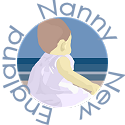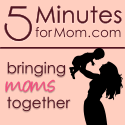
When Little M's parents told me they had ordered the "My Baby Can Read" program (of late-night infomercial fame) for him at 15 months old, my first thought was, "how about my baby can talk first?" Although he had mastered the word "more" at 10 months old, his speech was so slow in progressing that five months later, all he had added to his repertoire was "nan-nan," which he called me.
When the box of videos, books, and flashcards arrived I agreed to work with M each day using the program only because they are the parents and I am the nanny. It's my job to carry out their wishes, but I had little faith in seeing results. I've completed enough child development and early literacy courses to have it drilled into my head that flash cards in early education are a big no-no and have been for over 20 years!
Somewhat Sketchy:
The instruction booklet for the program suggests moving on to each new DVD and accompanying book once your child has mastered the first set of words. Buried in small print midway through the instruction book is the fact that this mastery will "usually occur between the ages of 4 and 5." Hmmm...this is around the average age that children normally start to recognize letters and environmental print (ie. street signs and logos). Sounds like the title of the program should really be, "My Preschooler Can Read," which I guess is not as impressive as babies learning to read.
I don't know how much M's parents paid for this program, but I don't think it was cheap. Dr. Tinzer, who supposedly developed this program for his own children, comes across a little bit like a used car salesman.Dr. Tinzer insists that your child watch his videos three times a day while minimizing all other television viewing.
Results?
A month later, Little M was indeed saying some of the words on the flash cards. Some of the words were easy, like hi and car, but recognizing words like wave, smile, bucket, and tiger was a little more impressive. Hmmm, maybe there was something to this program after all.
Contents:
5 DVD's that progress from Starter to Review stages, each introducing new words
5 matching books that correspond with the words on the DVD's. The books are large flapbooks, which are interesting to children. Words appear first and the photo appears under the flap.
Word cards - large flashcards with words on each side - no photos
Sliding word cards - A word appears on each side of these heavy cardboard cards which pull apart to reveal a corresponding photo. M has fun pulling these apart, but doesn't have the dexterity to slide them back together, which makes the thinner middle card bend, crease, and almost tear.
Big Board book with sliding panels - M enjoys this book the most. Little sliding word windows can be pushed back and forth to reveal a picture underneath.
What makes the difference in this reading program?
Dr. Tinzer believes that his program is different because children are not just passively watching television, but are interacting with the words and actions on the screen. He suggests that parents mimic the actions on the screen and repeat the words. For example, if the video shows a baby clapping and says the word clapping, parents are supposed to clap and repeat the word. Although this might sound effective in theory, have you ever tried to join in and get someone's attention while they are watching television? Their annoyance with you aside, wouldn't the viewer miss the important information that is supposedly being transmitted?
The only difference:
The only way that this program differs from other videos or books is that the written word is a prominent part of the program. It is a fact that children learn to talk by hearing adults talk, having conversations, and listening to story books. It does makes sense that if children observe a large word in conjunction with hearing the spoken word, that he may learn to recognize the word when he sees it.
This is one component that is not discussed in early childhood education. Most experts would say that this is not developmentally appropriate and considered pushing the child to learn a skill before he is truly ready. I agree with much of this belief, however, I have noticed that this is the ONLY visible difference in this program from any of the usual ways parents and educators have approached language skills.
Can Little M Read?
Little M has shown that he can "read" or recognize about 50 percent of the words written on the word cards in this kit. Within three months his parents showed him all five tapes and all the books and cards, which rushed the process a bit.
I have not pointed to words in our favorite books to see if M can "read" them, however, if he was actually learning to read, maybe he would point them out to me if he saw a familiar one.
Flashcards can be a chore:
In fact, this is the one reason why many early childhood educators are against using them. Flashcards are like quizzing a child, and soon they tire of the game and don't want to play anymore. As M's parents became more excited about his emerging word recognition, they began to flash the word cards whenever they were together, and soon M didn't want anything to do with any of the program components, including the videos.
Did this program teach M to read?
I believe that this program introduced words to M in a way (mostly visually) that his parents and I would never have tried if not being introduced to this program.
What were M's abilities before beginning this program?
Some background on M is important because they may have influenced his abilities to learn through this program.
M rarely watched television or electronic media before watching these DVD's. Since his birth, his parents have insisted that he not watch television during our days together. I saw M develop an amazing attention span for getting involved in his own activities from a very young age. He does not need to be entertained.
M loves books. We have been reading to him daily since he was 2 months old. His favorite early books were ABC's and a Counting Book. He loves rhyming books and musical nursery rhymes. He has a package of foam letters and numbers that his mother received at her baby shower. He liked to chew on them as an infant, but over time his Daddy taught him the names of the letters and numbers.
Before starting the Baby Can Read program, M already knew 10 foam letters by sight and all 9 numbers. He played with them by himself, and I would often hear him say aloud to himself -- A, E, O, as well as the numbers. His number recognition transferred to him being able to read the numbers on a stack of cardboard blocks, which I found pretty impressive by 15 months.
In my opinion, M was ripe for the Baby Can Read program. He already enjoyed and recognized some letters and numbers. Visual learning may be one of his personal strengths. Since he never watched TV, the 20-minute videos of simple actions paired with a word appearing on the screen were fascinating to him. Would he have enjoyed them if he was already watching Sesame Street, Dora, or Bob the Builder? I can't say for sure.
Should you get the Baby Can Read program?
If you could borrow it from a library or found it inexpensively somewhere else, the books would probably be enjoyable to most children because of their flaps and sliding panels.
However, since the only thing I find unique about this program is the visual depiction of words, you could accomplish this at home by yourself.
A simple sheet of construction paper folded in half with a single, large word on the front and a magazine picture cut-out on the inside might have the same appeal.
Your opinion?
I would love to hear from anyone who has had experiences with this program and hear your thoughts! Did it work for your child? What do you think was the effective component?



























Why would you want your baby to read? That's always my thought when I see the ads for this. There are so many other things for babies and toddlers to be doing, and they have a lifetime of reading ahead of them...
ReplyDelete